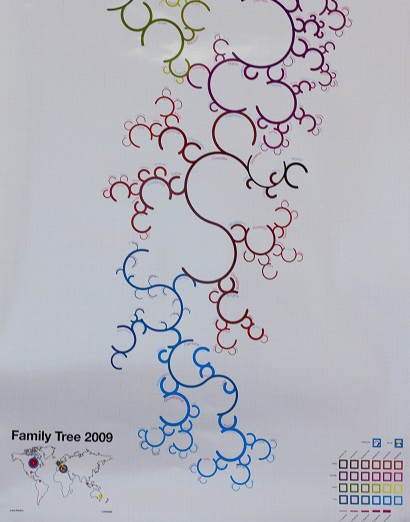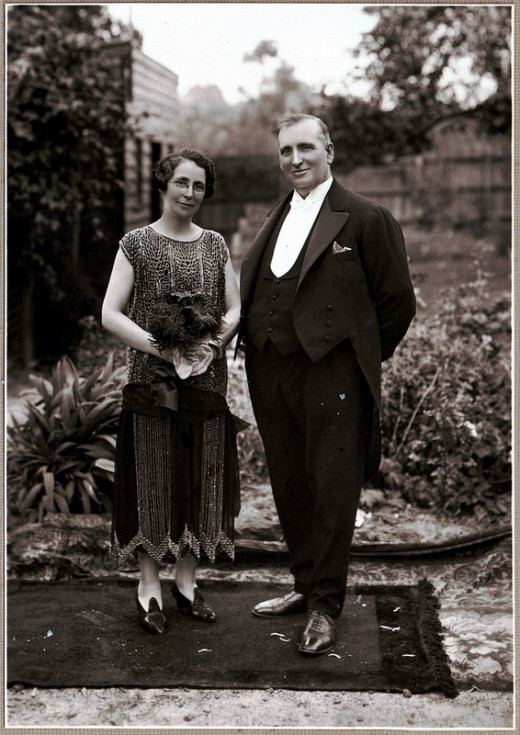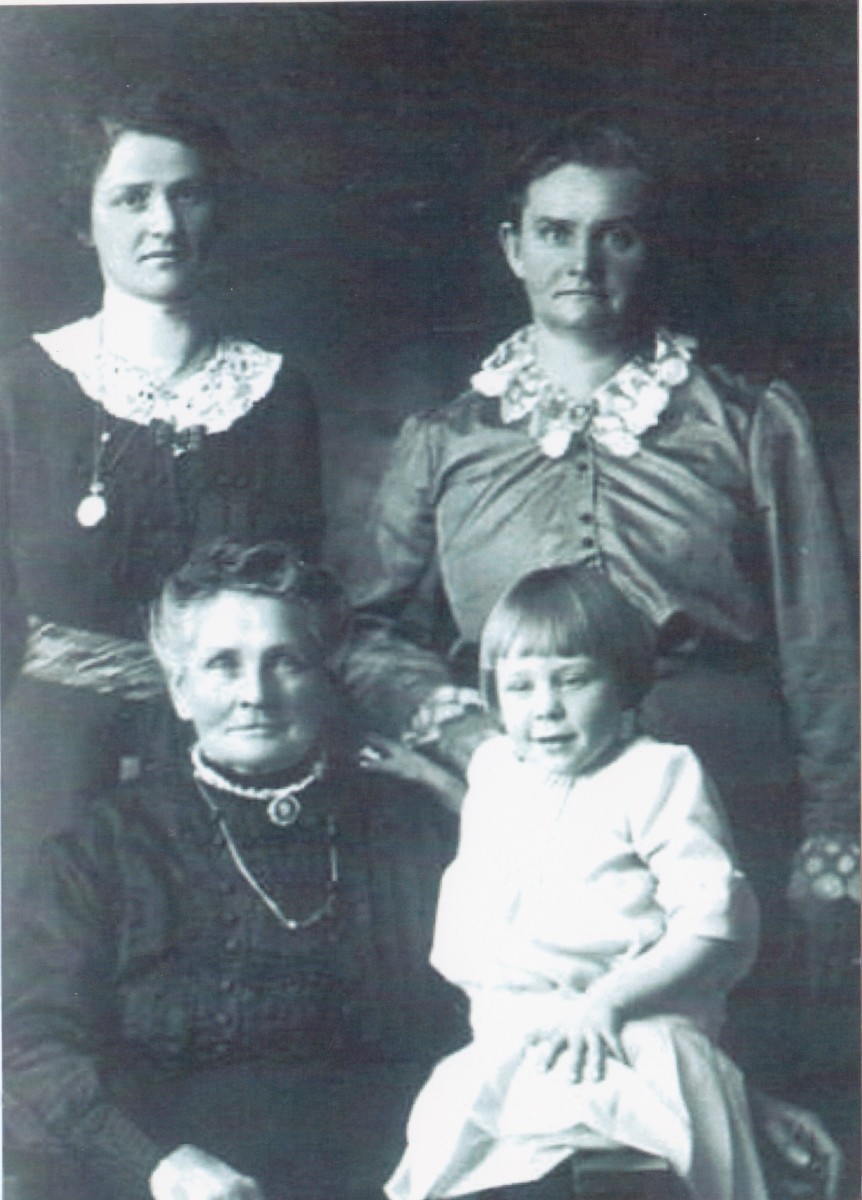- HubPages»
- Health»
- Quality of Life & Wellness»
- Personal Development
Following Your Parents Footsteps? How Ancestry can Help you Find your Own Path.

Ancestry to Help Ye'
The compass is spinning, 'careers' elude you. You'd invest yourself in your passion - if only you knew what it was.
It's no secret, we all question what we're doing with ourselves now and then. So every solid answer we can get is a small blessing; easing doubt about direction, raising confidence in the face of the unknown.
Despite the importance of 'know thyself' - especially somewhere as 'individualist' as the West - it's not that common here to look at your own lineage for answers. Normally the emphasis is on self-discovery through trial and error, carving your own path.
As such, interest in ancestry is usually a matter of curiosity, but giving the old gene-tree a good shake can drop a trove of information that can be put to use. We share history with our family, and we share their blood, so it stands that what motivated them - what was fruitful - is ripe for picking.
The American Enterprise Institute suggests that genetics have a 25-45% play in our preferences.
The Declaration
Here's the claim: you share some of the motivations and inclinations found in your family roots.
It isn't just a question of genetics (nature) - it's also the traditions and behaviour handed down in parenting (nurture.)
My father keeps his head down and works with his hands, my mother makes plans and works with her noggin. My father's parents were farmers, cynics. My Mother's parents were high-lifers - and anxious.
Down the line is myself : Abstract thinker who insists on solid pragmatism; a writer who also needs to get his hands dirty. Sits on a lot of fences. Even though my lifestyle and line of work is far and away from my fore-bearers, the resemblance in how I go about it is uncanny. Similar motivations are at play, similar traps wait to be sprung.
So if it's true you share preferences with the family that came before you, then each of their lives represents a complete (or nearly complete) story of chances, choices, and mistakes for you to learn from now.
If you feel directionless, or just want to further refine your approach in life and what you do with it, a bastion of information awaits you.

The Parents
The first thing I'm going to recommend is to skip looking at your parents - unless you are very comfortable with the idea.
Though they are the most immediate example (you are half dad, half mum,) there's a myriad of reasons you may choose not to. They may be poor role models, or you may be invested in being different from them regardless of their habits.
Or, quite simply, they may be too close at heart for you to appraise them honestly.
Most parents feel obligated to put their best face forward and set a good example for their children; this is all well and good, but we need the bad along with the good if it's going to instruct us on our own motivations.
Finally, the main reason to skip their review is that they are, in all likelihood, still alive. Living, growing, and still changing. Investigating their lives might bring you to a conclusion that, one day soon, gets ripped out from under you and turns everything upside down.
Parents don't offer the book-ended tales of life the way your great-grandparents (and possibly your late grandparents) can provide. So we stick with the dearly departed for your sleuthing.

The Grand Parents
If you're in your thirties, it's somewhat safe to assume that your grand-parents have passed.
Every biological grandparent has given 25% of their genes to you - four lives to review (with the option of more if you were raised by a step-parent of course.) The wonderful thing about studying your grandparents is that it also shines a light on your mother's and father's behaviour.
The immediacy of their lives means there are public records, archives, old friends, employee manifests, books, diaries, news articles and of course their children - all of which can provide homage and information.
I was able to dig up quite a bit of information about one of my grandfathers. He threw his weight around town a good deal. I found two things very interesting: the first was that he liked to party. He would fund bands to produce albums and at the same time run a hotel business - but only with his family as staff. He was also a drinker in a bad way. Both he and my grandmother demonstrated anxiety disorders, which was apparent in my mother and certainly manifested in my own life.
This showed me that I should be wary of alcoholism and what would most likely land me with it - a life of too much stress. If anxiety is the primary challenge in life I've gotten from my mother's family line, then logically its the one I should (and mostly have) put to rest if I'm to enjoy myself.
It's also the biggest beast that gets in the way of 'self-actualization.' I know plenty of people who have been motivated by their anxiety to get good at their craft - I'm not one of them. My grandfather quelled the beast with booze and became a well-liked philanthropist of sorts; I've quelled it with patience, and have been slowly getting the things I've always wanted as a result.

The Great Grand-Parents
Of which there are eight. Each giving you 12.5% of your genes today.
The interesting thing about this generation is that so few of them were born in North America. They are often the last roots out of 'the old country,' and going further back will likely produce generation after generation of ancestors that were all born and buried within 100km of each other.
We might think that, having passed away some fifty years ago (on average,) that the difficulty of digging up data would meet with diminishing returns, and we might have to give up on the thought of finding out anything of value about our great grand-parents.
But when we reach this far back, we come across that common phenomenon where live was mostly lived in one place. Thus if we can't study our Great-Grands directly, we can study the land they lived on; this can tell us things like our hereditary diet, which we've adapted to over generations (and is why I can handle lactose despite adulthood.) Local lore may come into play, since this was just on the cusp of when people began flooding to the cities.
Land itself holds more sway than we may initially think - especially with the older generations when work was more directly related to the land rather than the industry. If you knew how to farm a certain climate or hunt a certain environment - your livelihood depended on finding a match when you moved to new territory.
My mother's ancestry left the island-filled Mediterranean Coast for the island-filled Georgia Strait. My father's ancestors left farming the Ukrainian bread-basket to farm the Canadian one; (it wasn't his original intention - but it's exactly where he wound up.)
I wouldn't go as far as to speculate that we aesthetically seek out land that our forebears made a living from; but I wonder if my father enjoys looking at the ocean because it's flat like the land was. And I wonder if this is why I prefer being near water - even though I couldn't care less about swimming.
Usually it's 'a bridge too far' so to speak, when we reach this far back; but capturing the gist of our origins can tell us - for example - whether our family line has always been socio-economically poor. Whether some great tragedy is reverberating and healing down the family line. And if there are good or bad traditions that have filtered their way into the present.
If your family was traditionally nomadic - are the most recent generations travelers and freelancers? If they were peasantry - has staying in one region traditionally brought security and success?
Ever looked into your Family History?
Something to Study
While our initial motivation is to learn more about ourselves through the vicarious study of our ancestors - larger questions that may interest the reader will surely surface.
The past century of rapid industrializing and digitizing change assures us that there's no 'hard' limit on what we can do with ourselves, genetics don't decide your life for you. But a short person who dreams of basketball professionalism is going to have a harder go of it nonetheless. This tells us that 'soft' limits are out there, and playing into them is going to help dial in that spinning compass. It'll pare down your options from 'thousands' to 'hundreds.'
Every answer you can get is a small blessing.








